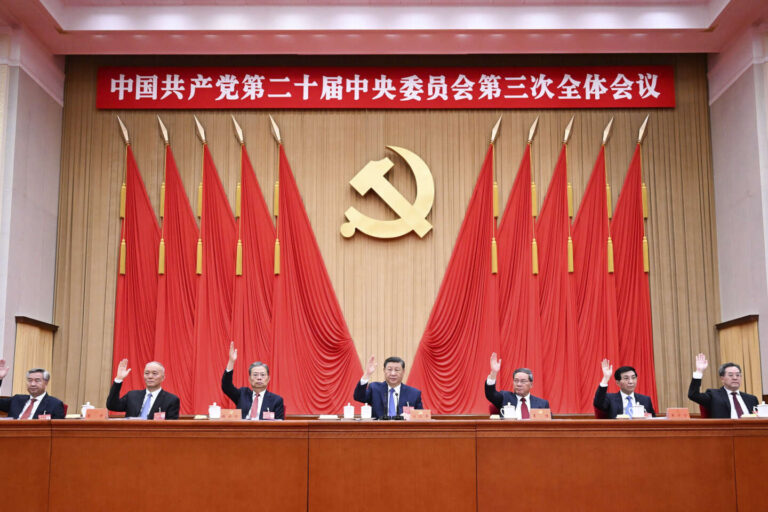T2024 will see several elections, an opportunity for many countries to choose their political projects. After Narendra Modi’s India in the spring, it will be the United States’ turn in the fall. China does not have elections, but it does have an anniversary: the 75th anniversary of the founding of the People’s Republic of China. A grand ceremony will be held on October 1st, marking the approval of the “model” promoted by President Xi Jinping. China’s seeming consistency does not mask the way the country is changing.
The outline of the project is well known and was laid out in clear terms in a document presented at the end of the Third Plenary Session of the Communist Party of China Central Committee, which convened with 376 standing members and delegates from July 15 to 18. At the 1978 plenary session, then-leader Deng Xiaoping approved the Reform and Opening Up policy, which marked a major turning point for China, its economy, society, and the world to which it became a major trading partner. The text of this plenary session, finally released on Sunday, July 21, paints a very different China.
The ruling party wants to reform the tax system to address certain internal imbalances, help rural residents benefit from urban public services, and ensure provinces and cities that implement infrastructure projects have sufficient resources. It also plans to reform the pension system.
These reforms are not insignificant, but for the rest, China is closing the door and preparing for confrontation. Cooperation will be strengthened with powers perceived as hostile, namely the United States and its allies. China’s industry must become “self-reliant” and stockpile strategic resources such as minerals essential for the energy transition. Science and technology should serve a “coordinated and highly effective system of national security.” The sense of national identity of ethnic minorities should be “completed” and religion made more sinic.
rupture
To get the country on this track, the Chinese president had to impose many changes. First, to stay in power, in 2018 he broke the two-term limit for the presidency, which had been considered a safeguard since the Maoist tribulations. At the same time, one million Uighurs were imprisoned in indoctrination camps, oppressed unchecked. The long periods of isolation of the country from the outside world during the years of the pandemic also contributed to further isolating the country.
China’s political and commercial support for Russia since the start of Russia’s invasion of Ukraine is another fundamental change. This was not a given, as other Chinese believe it is still in China’s interest to maintain good relations with the West to ensure China’s rise and technological catch-up.
Now, there is a shift toward supporting industry and production, and putting everything on the line in the technological race. This choice creates huge imbalances in the global macroeconomy and harms consumer citizens who fear that living standards will not improve as promised in the “China Dream” at the beginning of Xi’s first term. But China’s president believes that in politics, the ends justify the means. Under his leadership, China’s course is now set. The rest of the world has been warned.

